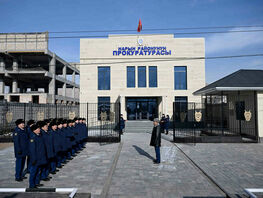Over the past decade, countries in Central Asia (CA) have experienced rising levels of air pollution, with an increasing number of days marked by extremely high concentrations of pollutants, most noticeable in urban areas. The World Bank’s summary report «Air Quality Management in Central Asia» says.
According to data from the World Health Organization, average annual concentrations of fine particulate matter (PM2.5) are 6–12 times higher than WHO guidelines.
Air pollution, especially PM2.5 particles, causes economic losses due to its negative impact on public health, including contributing to increased premature mortality.
According to estimates from the latest Global Burden of Disease study (2021), air pollution by PM2.5 leads to more than 65,000 premature deaths in CA every year.
The health damage caused by PM2.5 pollution in Central Asia amounts to $15.2–21.7 billion annually.
In addition to harming public health, air pollution also affects other factors such as cities’ competitiveness, quality of life, and attractiveness for investors and tourists. Therefore, failure to take measures to combat air pollution results in harm to both public health and the economy at local and national levels.






